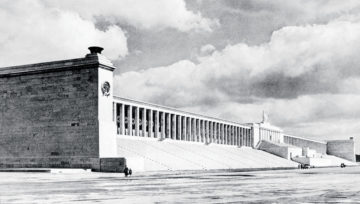Hal Foster at Artforum:
 Initial detractors called Minimalism “cold” and “inhuman,” and subsequent opponents deemed it “masculinist” and “totalitarian.” I still see these responses as emotionally reactive or formally reductive or both, and, like several other critics, I have stressed the phenomenological dimension of Minimalism, its engagement with the body and the space of the viewer, in part to counter such readings. Nonetheless, they did represent the sentiments of many observers, and some of these accounts also point to the historical problem at issue here, even if, to my mind, they misconstrue it in doing so.11 For what was taken as “inhuman” in Minimalist practice is better understood as “antihumanist,” a position that was largely shared by Conceptual artists. This antihumanism was active, for example, when, in another well-known conversation from 1966, Frank Stella and Donald Judd claimed to jettison European “rationalism,” and when Bochner insisted a year later that Conceptualists sought to bracket all considerations of style and metaphor.12 Not only a local reaction against late Abstract Expressionism, this rejection, widespread among artists, writers, and philosophers of the time, targeted a humanism that had had no effective answer for fascism, the Holocaust, or the Bomb and that continued to fail in the face of American imperialism in Southeast Asia and elsewhere.
Initial detractors called Minimalism “cold” and “inhuman,” and subsequent opponents deemed it “masculinist” and “totalitarian.” I still see these responses as emotionally reactive or formally reductive or both, and, like several other critics, I have stressed the phenomenological dimension of Minimalism, its engagement with the body and the space of the viewer, in part to counter such readings. Nonetheless, they did represent the sentiments of many observers, and some of these accounts also point to the historical problem at issue here, even if, to my mind, they misconstrue it in doing so.11 For what was taken as “inhuman” in Minimalist practice is better understood as “antihumanist,” a position that was largely shared by Conceptual artists. This antihumanism was active, for example, when, in another well-known conversation from 1966, Frank Stella and Donald Judd claimed to jettison European “rationalism,” and when Bochner insisted a year later that Conceptualists sought to bracket all considerations of style and metaphor.12 Not only a local reaction against late Abstract Expressionism, this rejection, widespread among artists, writers, and philosophers of the time, targeted a humanism that had had no effective answer for fascism, the Holocaust, or the Bomb and that continued to fail in the face of American imperialism in Southeast Asia and elsewhere.
more here.
